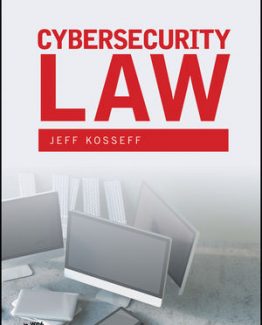Juvenile Delinquency: The Core 6th Edition by Larry Siegel, ISBN-13: 978-1305577411
[PDF eBook eTextbook]
- Publisher: Cengage Learning; 6th edition (January 12, 2016)
- Language: English
- 512 pages
- ISBN-10: 1305577418
- ISBN-13: 978-1305577411
JUVENILE DELINQUENCY: THE CORE, 6th Edition delivers cutting-edge coverage of essential theory, policy, and the latest research in one value-priced, reader-friendly eBook. Renowned for its balanced approach and engaging writing style, this brief book helps you understand the nature of delinquency and its causes, as well as current strategies being used to control or eliminate its occurrence. The MindTap online learning experience guides you through your course and includes video cases, career scenarios, visual summaries, and a variety of tools and apps.
This brief text is acclaimed for its authority and balance as well as the authors’ ability to completely engage students in the juvenile delinquency course. In around 500 pages, Siegel and Welsh help students understand the nature of delinquency, its causes and correlates, and current strategies being used to control or eliminate its occurrence.
Table of Contents:
About the Authors
Brief Contents
Contents
Preface
Chapter 1: Childhood and Delinquency
The Risks and Rewards of Adolescence
The Problems of Youth
Juvenile Delinquency
The Development of Childhood
Developing Juvenile Justice
Status Offenders
Summary
Key Terms
Questions for Review
Questions for Discussion
Applying What You Have Learned
Groupwork
Chapter 2: The Nature and Extent of Delinquency
Measuring Delinquency
Crime Trends in the United States
Correlates of Delinquency
Chronic Offending: Careers in Delinquency
Juvenile Victimization
Summary
Key Terms
Questions for Review
Questions for Discussion
Applying What You Have Learned
Groupwork
Chapter 3: Individual Views of Delinquency: Choice and Trait
Choice Theory
Choice Theory and Delinquency Prevention
Trait Theories: Biosocial and Psychological Views
Biosocial Theories of Delinquency
Psychological Theories of Delinquency
Summary
Key Terms
Questions for Review
Questions for Discussion
Applying What You Have Learned
Groupwork
Chapter 4: Sociological Views of Delinquency
Social Factors and Delinquency
Social Structure Theories
Social Process Theories: Socialization and Delinquency
Critical Theory
Theory and Delinquency Prevention
Summary
Key Terms
Questions for Review
Questions for Discussion
Applying What You Have Learned
Groupwork
Chapter 5: Developmental Views of Delinquency: Life Course, Latent Trait, and Trajectory
The Life Course View
Life Course Concepts
Age-Graded Theory
The Latent Trait/Propensity View
Trajectory Theory
Evaluating the Developmental View
Summary
Key Terms
Questions for Review
Questions for Discussion
Applying What You Have Learned
Groupwork
Chapter 6: Gender and Delinquency
Gender Differences in Development
Gender and Delinquency
Trait Views
Socialization Views
Feminist Views
Gender and the Juvenile Justice System
Summary
Key Terms
Questions for Review
Questions for Discussion
Applying What You Have Learned
Groupwork
Chapter 7: The Family and Delinquency
The Changing American Family
The Family’s Influence on Delinquency
Child Abuse and Neglect
Abuse, Neglect, and Delinquency
Summary
Key Terms
Questions for Review
Questions for Discussion
Applying What You Have Learned
Groupwork
Chapter 8: Peers and Delinquency: Juvenile Gangs and Groups
Adolescent Peer Relations
Youth Gangs
Contemporary Gangs
Why Do Youths Join Gangs?
Controlling Gang Activity
Summary
Key Terms
Questions for Review
Questions for Discussion
Applying What You Have Learned
Group Work
Chapter 9: Schools and Delinquency
The School in Modern American Society
Dropping Out
Academic Performance and Delinquency
Delinquency in Schools
The Role of the School in Delinquency Prevention
Legal Rights in the School
Summary
Key Terms
Questions for Review
Questions for Discussion
Applying What You Have Learned
Group Work
Chapter 10: Drug Use and Delinquency
Frequently Abused Drugs
Drug Use Today
Why Do Youths Take Drugs?
Pathways to Drug Abuse
Drug Use and Delinquency
Drug Control Strategies
What Does the Future Hold?
Summary
Key Terms
Questions for Review
Questions for Discussion
Applying What You Have Learned
Group Work
Chapter 11: Delinquency Prevention and Juvenile Justice Today
Delinquency Prevention
Early Prevention of Delinquency
Prevention of Delinquency in the Teenage Years
Juvenile Justice Today
A Comprehensive Juvenile Justice Strategy
The Future of Delinquency Prevention and Juvenile Justice
Summary
Key Terms
Questions for Review
Questions for Discussion
Applying What You Have Learned
Group Work
Chapter 12: Police Work with Juveniles
History of Juvenile Policing
Police and Juvenile Offenders
Police and the Rule of Law
Discretionary Justice
Police Work and Delinquency Prevention
Future of Juvenile Policing
Summary
Key Terms
Questions for Review
Questions for Discussion
Applying What You Have Learned
Groupwork
Chapter 13: Juvenile Court Process: Pretrial, Trial, and Sentencing
The Juvenile Court and Its Jurisdiction
Juvenile Court Process
Transfer to the Adult Court
Juvenile Court Trial
Future of the Juvenile Court
Summary
Key Terms
Questions for Review
Questions for Discussion
Applying What You Have Learned
Groupwork
Chapter 14: Juvenile Corrections: Probation, Community Treatment, and Institutionalization
Juvenile Probation
Probation Innovations
Secure Corrections
Juvenile Institutions Today: Public and Private
The Institutionalized Juvenile
Correctional Treatment for Juveniles
The Legal Right to Treatment
Juvenile Aftercare and Reentry
Future of Juvenile Corrections
Summary
Key Terms
Questions for Review
Questions for Discussion
Applying What You Have Learned
Groupwork
Notes
Glossary
Name Index
Subject Index
Larry J. Siegel was born in the Bronx, New York. While living on Jerome Avenue and attending City College (CCNY) in the 1960s, he was swept up in the social and political currents of the time. He became intrigued with the influence contemporary culture had on individual behavior: did people shape society or did society shape people? He applied his interest in social forces and human behavior to the study of crime and justice. After graduating from CCNY, he attended the newly opened program in criminal justice at the State University of New York at Albany, where he earned both his M.A. and Ph.D. degrees. After completing his graduate work, Dr. Siegel began his teaching career at Northeastern University, where he was a faculty member for nine years. After leaving Northeastern, he held teaching positions at the University of Nebraska–Omaha, Saint Anselm College in New Hampshire, and the School of Criminology and Justice Studies at the University of Massachusetts–Lowell, where he taught for 27 years. He is now a professor emeritus, still teaching online courses in criminology and criminal justice. Dr. Siegel has written extensively in the area of crime and justice, including books on juvenile law, delinquency, criminology, criminal justice, and criminal procedure. He is a court- certified expert on police conduct and has testified in numerous legal cases. The father of four and grandfather of three, Larry Siegel now resides in Naples, Florida, with his wife, Terry, and their two dogs, Watson and Cody.
What makes us different?
• Instant Download
• Always Competitive Pricing
• 100% Privacy
• FREE Sample Available
• 24-7 LIVE Customer Support






Reviews
There are no reviews yet.